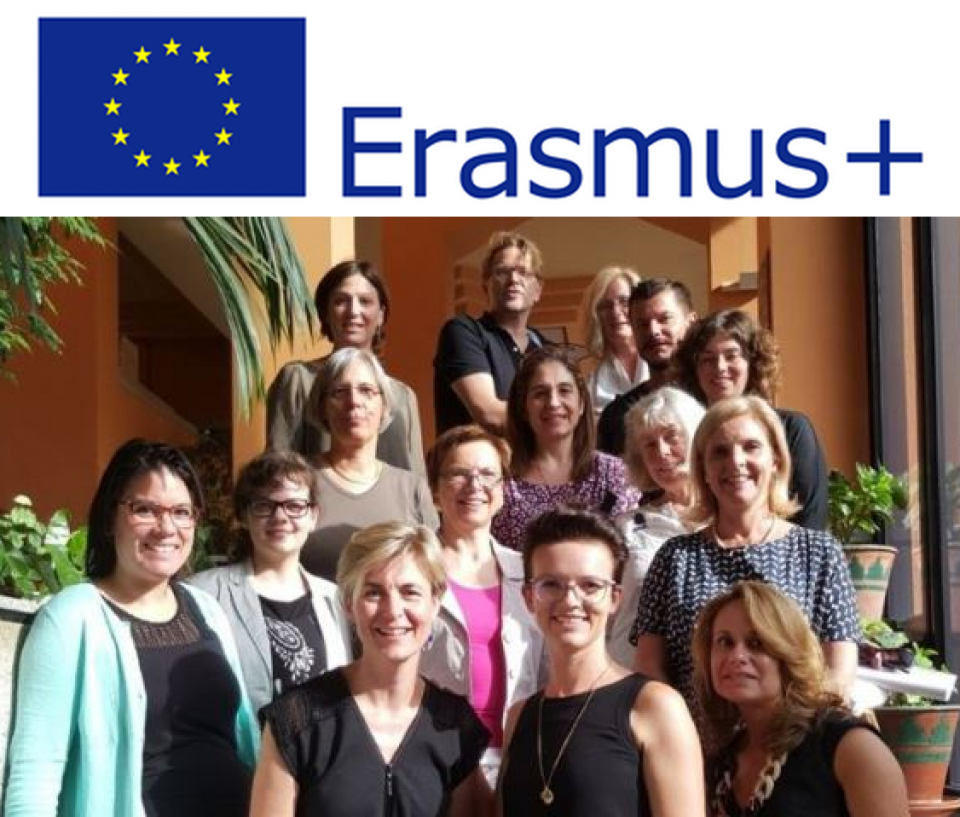Project description
Non communicable diseases (NCDs) take 38 million people’s lives each year worldwide (1). In Europe NCDs are the leading cause of morbidity and mortality. The World Health Organization (WHO) and the European Union (EU) have recognized the importance of nutrition in prevention and treatment of NCDs (2; 3). Dietitians play an important role in the prevention of NCDs and in patient care of several diseases (4).
Dietetics is a relatively young discipline at HEIs in Europe and differences in curriculum and thus education still exist. An example of the differences encountered is the “Dietetic Care Process” (DCP) or “Nutrition Care Process”, which is of key concern to all dietetic professionals. Worldwide and within Europe different frameworks of DCPs are used e.g. differences in the number of steps or used terminology. Equally important, each step should be strengthened by evidence-based recommendations, which are still not available for Europe. Furthermore, not all countries use a standardized language in dietetics (5). Thus implementation of international research projects, comparability of project results, agreement of the most efficient therapies and cross border mobility for professionals is difficult.
Moreover, there is a substantial need for innovative learning materials.
Problem statement
Based on the Lancet Commission Report on the Training of Health Professionals, following questions arise for dietetics:
How can education be more competency-based?
How can national and international networking be promoted?
How to promote the understanding and application of evidence-based dietetics?
How to develop and promote applied research competence in the work field of dietetics?
How can digital literacy be improved in the professional group?
Online learning methods are emerging, but however, technology doesn’t always answer the needs of healthcare education, as was also shown by the DIETS2 thematic network. Interactivity and clinical reasoning skills can be increased by the integration of ‘Virtual Patients’.
Different learning materials for the training of the various DCP are available, but unfortunately none use an innovative learning approach or are free for use. Therefore, another key output of this project is a Massive Open Online Course (MOOC) based on the unified framework DCP and free for use.
Health professionals need to be trained to use new technologies as well as to provide innovative means of health care aimed at improving patient care (6). Therefore a Strategic Partnership composed of five European institutions of higher education (HEI) has been formed to enhance the quality of dietetic education.
Project goals
- unify the framework Dietetic Care Process (DCP)
- produce a Massive Open Online Course (MOOC), free for use
- implement two Intensive Study Programs (ISP) to test the MOOC and evaluate the materials
- set up a syllabus and implementation guidelines to disseminate the results
- improving quality and relevance of dietetic higher education in Europe
- mproving key competences including English language, digital competences, knowledge and understanding of dietetics, dietetic process as well as professional reasoning
- building professional relationships, autonomy and accountability
- research and development in dietetics and thereby increasing employability
- support discussions concerning a dietetic standardized language
- support Life Long Learning for dietitians
Nutrition and dietetics team from AP University college
AP University College is responsible for developing pedagogical training materials to present the clinical cases on the MOOC and for the development of the contents of the two ISPs. A syllabus will be compiled and addresses the other European universities as a guideline to implement the mentioned results within the curriculum.
To disseminate the results as a role model for Europe, implementation guidelines are compiled as a discussion basis for the stakeholders. These results will support the development of a unified framework DCP and the discussions about the implementation of a standardized language in the field of dietetics. Furthermore, quality and relevance dietetic higher education improves and Life Long Learning will be supported and serves as basis of excellent dietetic therapy in all of whole Europe, which lead to cost savings in the health care sector.
Outcomes
Output of the project include a unified framework DCP, as a basis for the development of clinical cases, and the production of the innovative MOOC, which is embedded in the IMPECD-platform and available 3 years after the project has ended.
IMPECD will improve the quality of care provided by healthcare professionals in the area of dietetics through the development, evaluation and implementation of a MOOC (Massive Open Online Course) with
virtual patients to acquire and evaluate core competences of the dietetic care process (assessment, dietary diagnosis and intervention planning and implementation)
interactivity and international discussion while going through the cases
strengthening digital competences
guided reflection and evaluation tools for the learner
In addition, professional networks as well as applied research in the field of nutrition are promoted, thus improving the health of European patients in the long term. Once finalized, the MOOC will be made available and free for all dietetics professionals, students and education institutes.
This project has been funded with support from the European Commission. This publication reflects the views only of the author, and the Commission cannot be held responsible for any use which may be made of the information contained therein.






